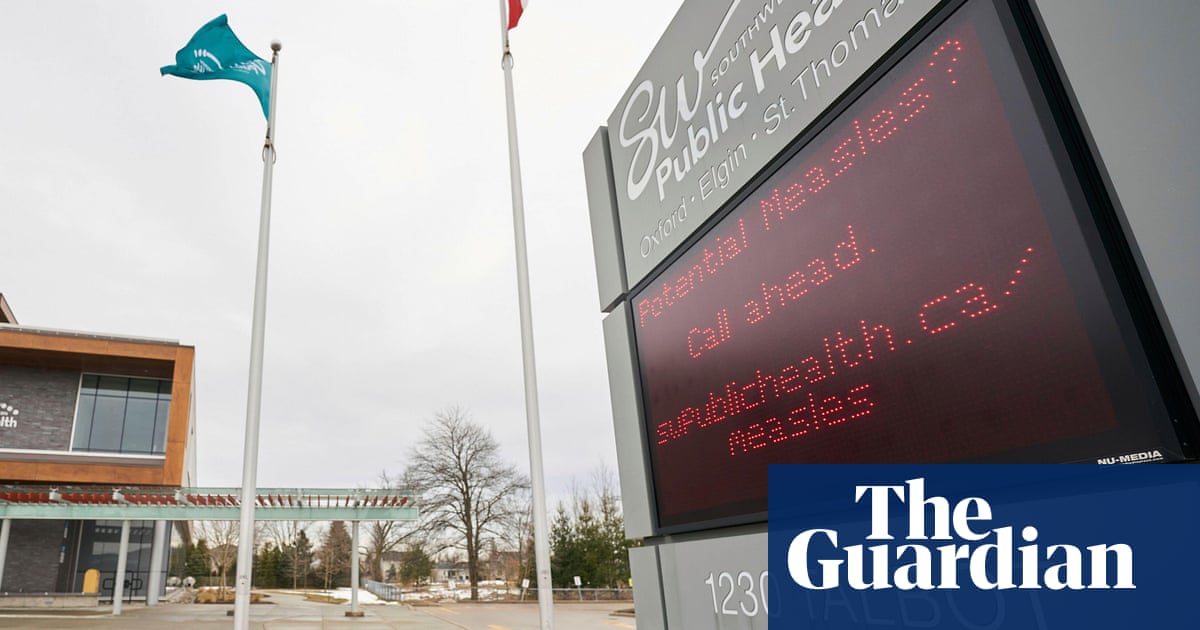A Canadian infant who was born prematurely and had measles has died, officials said on Thursday without confirming a cause of death, raising heightened concern about the virus’s resurgence.
Canada has recorded 2,755 measles cases – including 2,429 confirmed and 326 probable – according to federal health data updated on 2 June.
The epicenter of the outbreak is the province of Ontario, where nearly 2,000 cases have been reported.
Ontario’s chief medical officer of health, Kieran Moore, said in a statement “the infant contracted the virus before birth from their mother, who had not received the measles, mumps and rubella (MMR) vaccine”.
“While measles may have been a contributing factor in both the premature birth and death, the infant also faced other serious medical complications unrelated to the virus,” he added.
In March, Moore said the outbreak was “disproportionately affecting some Mennonite, Amish, and other Anabaptist communities”, partly due to lower rates of vaccination among those populations.
If measles is confirmed as the cause of the infant’s death, it would mark the first fatality linked to the current outbreak.
After Ontario, the next hardest hit area is the western province of Alberta, with 632 confirmed cases, according to the federal data.
Measles is a highly contagious respiratory virus spread through droplets when an infected person coughs, sneezes or simply breathes.
Known for its characteristic rash, it poses a serious risk to unvaccinated individuals, including infants under 12 months who are not ordinarily eligible for vaccination, and those with weakened immune systems.
It can lead to severe complications, including pneumonia, brain swelling, premature birth and in rare cases, death.
Before widespread immunization programs were introduced in the early 1970s, hundreds died each year from the virus in Canada. It was considered eradicated in 1998, but cases continue to occur due to spread from other countries.
The US is also confronting a significant measles resurgence, with a vaccine-skeptical Mennonite Christian community straddling the Texas-New Mexico border hit particularly hard.
Donald Trump’s health secretary, Robert F Kennedy Jr, has undermined confidence in the MMR vaccine – a highly effective shot he has falsely claimed is dangerous and contains fetal debris.
